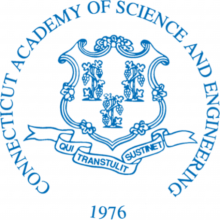CALL FOR APPLICATIONS
CASE – CONNECTICUT GENERAL ASSEMBLY ARTIFICIAL INTELLIGENCE POLICY FELLOWSHIP
East Hartford, CT – The Connecticut Academy of Science and Engineering (CASE) is accepting applications for a one-year CASE Fellowship – CT General Assembly (CGA) Artificial Intelligence Policy Fellowship, based at the Legislative Office Building, 210 Capitol Avenue, Hartford, CT.
Eligible candidates must have a PhD or equivalent terminal degree — or, for engineers, a masters-in-engineering with a minimum of three years of professional experience — in a field relevant to the topic. The focus will be researching policies to further protect the data of Connecticut residents, which may include, but would not be limited to, the following key areas: 1) consumer privacy, including data breach notification and limiting the collection and retention of personal data to what is necessary for the specified purpose; 2) online privacy protection; 3) health information privacy; 4) children’s privacy; 5) data security measures for the protection of personal information; 6) require businesses to have clear and accessible privacy policies; and 6) mechanisms for enforcement.
PhD candidates will be considered if completion of their PhD is imminent (see the FELLOWSHIP APPLICATION and FREQUENTLY ASKED QUESTIONS for more information).
This is an opportunity for a scientist/engineer to engage at the nexus of research and policy on a significant policy issue.
APPLICATION DEADLINE: January 6, 2025, at 5:00 pm ET
APPLICATION AND RELEVANT INFORMATION
This Fellowship is an opportunity to transform a researcher’s professional path. Some researchers who have completed Fellowships opt to remain in public service, while others return to academia, nonprofits, or industry with a deeper understanding of how science informs policymaking, enhancing their career as researchers, professors, consultants, and leaders from professional organizations, business, and industry.
CASE seeks to identify a diverse pool of candidates, including broad representation from individuals at different career stages, gender, age, race/ethnicity, physical ability, geographic location, and institutional affiliation.
###

